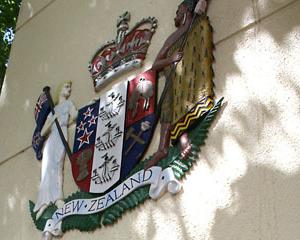The Supreme Court is to decide whether police can supply "vetted" jury lists to the Crown, enabling it to challenge potential jurors because of their criminal histories.
If the court decides police can supply the lists, it will then look at whether the list should also be made available to the accused in cases.
The court will give the issue urgency, as it "potentially concerns every criminal jury trial," Justice John McGrath said in a decision released today.
The court has granted leave to a woman found guilty in a drugs case to challenge a Court of Appeal ruling that police can lawfully access the national criminal records database to provide the crown solicitor with any criminal history of those on the jury list.
The crown solicitor could then use that information to decide whether to challenge anyone who was a potential juror.
The appeal court, by a majority, also held that the Crown was neither required nor permitted to disclose to the defence "non-disqualifying" criminal history information about potential jurors.
It could only do so when there was a likelihood that jurors with a criminal history might have an adverse predisposition towards the defence in a particular case.
The decision of the Supreme Court is unusual in that whatever it decides, it will not change the conviction and sentence for the appellant, Deborah Gordon-Smith.
She was sentenced to eight years' prison in Christchurch in May last year for her part in a drugs conspiracy that involved supplying the drug P.
It was at the High Court trial for her and seven others that counsel for one of the accused applied to the trial judge for an order prohibiting the Crown from using vetted information.
The judge granted the application, but the Crown appealed and the Court of Appeal ruled that the crown solicitor could use information supplied by police.
Justice McGrath said because the trial judge's ruling was favourable to Gordon-Smith and jury selection proceeded in accordance with his ruling, the appeal against the Court of Appeal's adverse judgment could not be of any practical benefit to her.
But she and the Crown had made it plain they wished the appeal to be heard.
The Crown has indicated it will challenge the finding of the Court of Appeal that if a vetted jury list can be passed to the Crown, information about vetting cannot be passed on to the accused.











